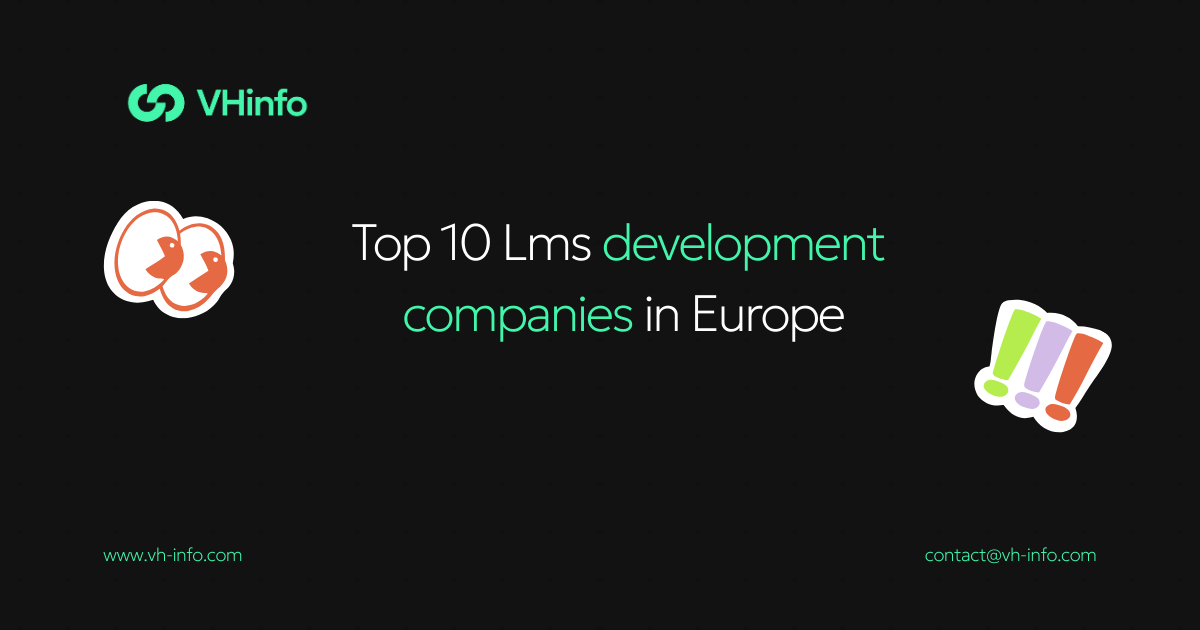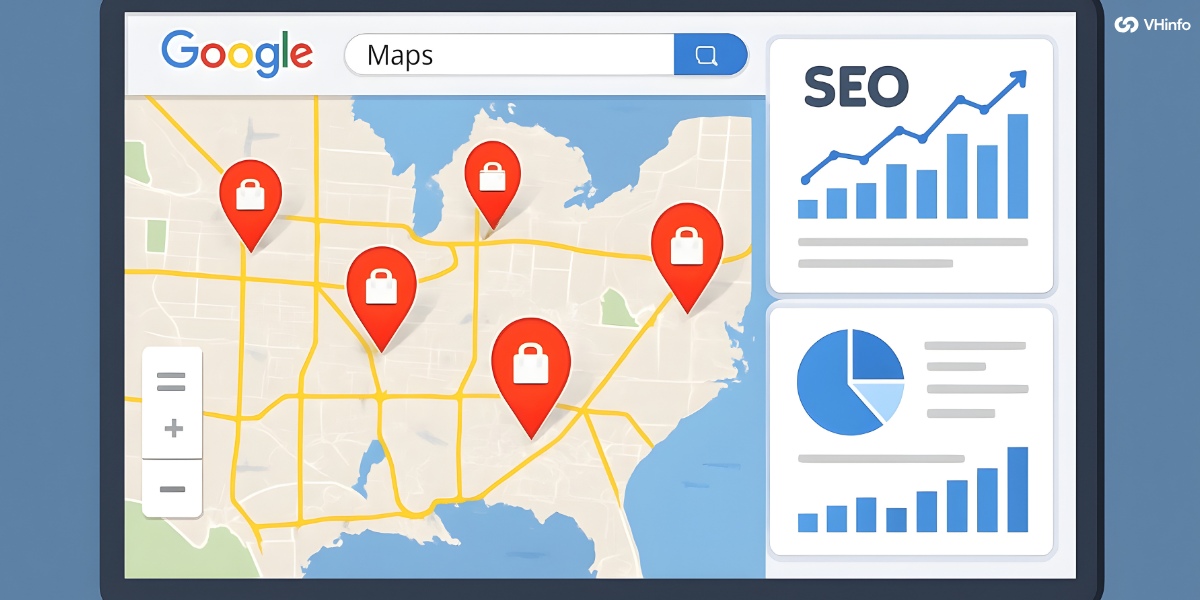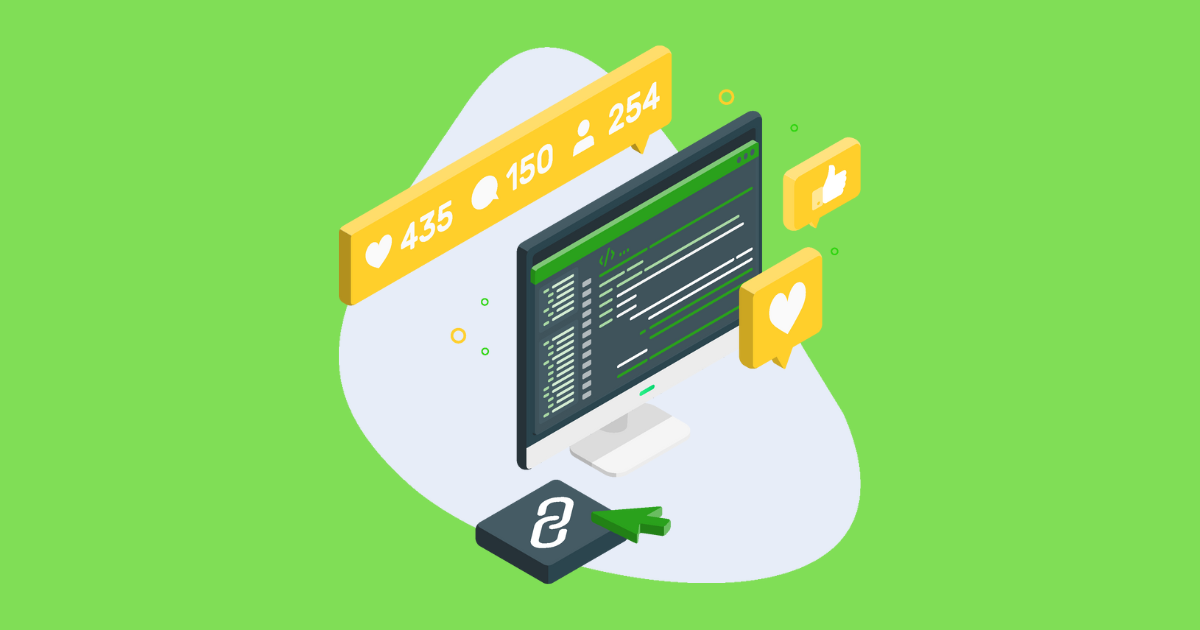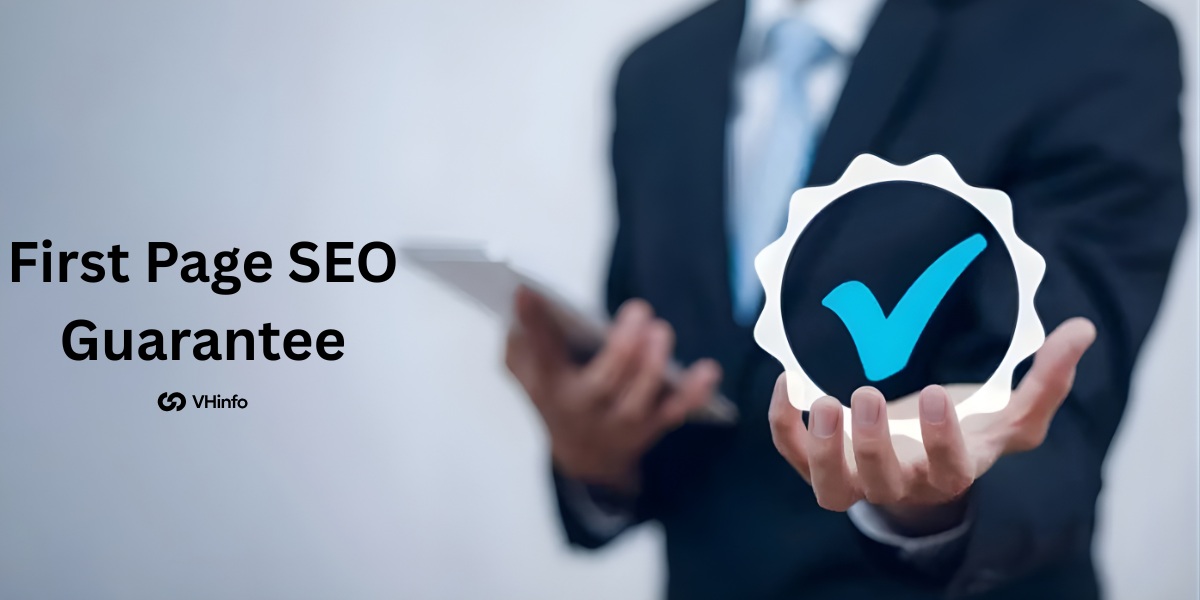There is an assertion that the European Learning Management System (LMS) market exceeds its growth rate with unmatched valuations hitting USD 8.43 billion on the year 2024 to an approximated elevated value of USD 41.67 billion in the year 2033.This is an impressive CAGR of 19.42 indicating that Europe will become the 2nd biggest LMS market in the world.
This growth poses an opportunity and challenge to organizations, which are on the lookout of solutions in LMS.There are two directions in the market: ready-to-use SaaS services with a rich functionality and fast implementation, or development studios where the system is developed based on a specific need.
Here is an extensive list of reviewing the best 10 LMS development firms in Europe, and you should go through it to gain the insights that will be needed to make the right choice. Trying to find a quick implementation or a fully customized solution?We will help you find the right partner to meet your unique needs of the organizations.
Understanding the European LMS Market Landscape
The European market of LMS is rather mature and large. Europe is unique in the sense that it does not just have an existing ecosystem of established SaaS providers, but also a distinct class of specialty SaaS-focused custom development shops.This can be attributed to diverse education traditions in the continent, multiculti-lingual recruitment pressures as well as heterogeneous levels of compliance amongst member states.
There are some important causes of this market growth. BYOD and the Mobile learning trends are redefining training delivery practices of organizations. The movement to the cloud-based platforms offers elastic infrastructure and hassle-free access. Also, the interplay of AI and machine learning is enabling the traditional learning management to shift into intelligent and adaptive systems.
The UK is ahead of LMS adoption in Europe given massive investments on use of cloud and artificial intelligence.Nonetheless, their demand is spread across the continent where organizations in Germany, France, Netherlands, and Nordic countries are engaged in the process of modernizing their learning infrastructure.
SaaS Platforms vs Custom Development: Making the Right Choice
At the risk of sounding obvious, prior to focusing on individual companies you need to know the basic potential decision between SaaS platforms and custom development and how this will affect your decision.
SaaS eliminates the need to deploy and test, has proven functionality and subscription-based price. The solutions are effective when used by organizations that may align their operations accordingly to suit the software features. There are the companies such as Docebo and LearnUpon which offer the whole package to use with immediate effect.
There is maximum flexibility and custom solutions through custom development agencies. This solution is better accommodated by organizations that have particular workflows, certain brand needs, or those coming up with unique EdTech products. The agencies of this type create systems on scratch, so they will perfectly correspond to your specific demands.
The trade-off is evident: SaaS tools are all about speed and reduced risk whereas bespoke development is all about flexibility and uniqueness with an increased timeline and initial investment as side effects.
Evaluation Framework for LMS Providers
In order to enable you to examine partners in a good way we have come up with an entire assessment framework that addresses five important sections:
Core Capabilities: Seek vendors that provide services with in-house, full-cycle development resources, legacy system modernization capabilities, and capabilities to integrate easily into your existing enterprise ecosystem.
Technology Leadership: New LMS products must integrate AI to develop individual learning journeys, work in multi tenant designs to accommodate external learning, and leverage the latest technology stacks, such as React.js, Node.js, and cloud-based services.
Fact-Based Results: Leading vendors back up their claims with measurable business outcomes. Search for case studies that show actual gains in employee retention, training completion rates, operational efficiency, etc.
Partnership Quality: Examine how transparent they are on pricing, implementation time frames and quality of support.Leading suppliers provide customer success managers and the availability of the technical support 24/7.
Industry Recognition: Awards by groups such as G2, Brandon Hall Group, and TrustRadius signify continued superiority and leadership in the industry.
Top 10 LMS Development Companies in Europe
1. Yojji – Leading Custom LMS Development
As a LMS development expert, Yojji can be considered as the leading company in Europe that can provide custom solutions that are the most convenient and balanced in terms of both innovations and business requirements. Since Yojji has European-based headquarters and a highly dedicated emphasis on the EdTech-related sphere, it offers services ranging between initial consultations and continuous maintenance.
The distinguishing feature of Yojji is that they effectively combine the knowledge of the educational pedagogy with the latest technology. Their team is composed of the instructional designers with enhanced technical skills, which make their LMS solution more than a perfectly operational tool but also enables improved learning results.
Key Strengths:
- Complete custom development from concept to deployment
- AI-powered adaptive learning systems
- Multi-language and multi-tenant support
- GDPR compliance and enterprise-grade security
- Proven track record with educational institutions and corporations
The development strategy by Yojji starts with a detailed analysis of your business needs which are later translated into MVPs, full production, and continuous upgrading. Their resolutions involve relevance of the current technologies such as machine learning algorithms to deliver customized content and profound analytics to monitor performance.
2. Docebo – AI-First SaaS Platform
The development strategy by Yojji starts with a detailed analysis of your business needs which are later translated into MVPs, full production, and continuous upgrading. Their resolutions involve relevance of the current technologies such as machine learning algorithms to deliver customized content and profound analytics to monitor performance.
Key Features:
- Extended Enterprise capabilities for multiple audiences
- Over 64 Brandon Hall Group awards
- 94% subscription-based revenue model
- Comprehensive integration ecosystem
Docebo is very good with big businesses that require training employees, customers, partners, and even the members through a single platform. They are multi-portal meaning that they can accommodate separate and branded environments with centralized management and reporting.
3. LearnUpon – Multi-Portal Excellence
The cloud-based system of LearnUpon is dedicated to providing excellent user experiences as it has a multi-portal feature.The company based in Dublin has acquired an excellent reputation when it comes to customer service and its use of rapid deployment.
Notable Achievements:
- 89% reduction in partner support calls for ChargePoint
- 94% customer health score for Craneware
- Dedicated customer success teams
- Scalable pricing from 1 to 500+ users
LearnUpon is strongest where it – relatively unique – makes taking training setups from grouping person to group of learner or learner group or simply learner simple to administer.
4. Geniusee – Full-Cycle Development Expertise
Headquartered in Kyiv, with branch offices in Warsaw, Geniusee has full-service EdTech developer capabilities. Their practice includes all steps of the work, including the first stages of discovery up to mobile app development and support.
Service Offerings:
- Complete business analysis and consulting
- Custom LMS development and modernization
- AI-powered e-learning platforms
- 24/7 post-launch support
The strength of Geniusee is that their approach is consultative, which enables them to aid their client in deciding the best platform strategy be it custom-built, open-source or commercial solutions.
5. Absorb LMS – Rapid Implementation Leader
Absorb LMS integrates the use of AI with consummate usability. Canadian corporation having operations in Europe is known by fast implementation schedules and easy to understand interface.
Key Differentiators:
- 4-8 week implementation timeframes
- SOC 2, ISO 27001, and ISO 27701 certifications
- AI-powered personalized learning paths
- Comprehensive authoring tools
The absorb has a brilliant record in establishing organizations with their LMS running fast without compromising on functionalities or safety.
6. Bamboo Agile – EdTech Specialists
Their vast knowledge about instructional design and the European education technology market is an exclusive value that Bamboo Agile offers. Their team has been trained with Finnish educators and they hold regular visits to the big industry conferences.
Specialized Services:
- Instructional design consulting
- Open-source system customization
- Legacy system modernization
- Gamification and mobile learning
They are suitable in companies where technical prowess is not the only priority; teaching, is also paramount to the organization.
7. Bridge LMS – Performance Integration
Bridge is the only learning management system integrated with performance management in one platform. As a part of the Learning Technologies Group, they provide an overall solution linking training and business performances.
Recognition and Results:
- G2 Leader in Europe Regional Grid Report
- 20% reduction in turnover for Chemical Bank
- 1.8-month average implementation time
- 97% staff retention rate for Adwise clients
Bridge’s integrated approach helps organizations directly measure training impact on business performance.
8. Moon Technolabs – Technology Innovation
Having several projects of more than 16 years of experience and 250 plus professionals on board, Moon Technolabs is a specialist provider of custom LMSs with a focus on blending best technological advances in their products.
Technical Capabilities:
- AI, WebRTC, IoT, and AR/VR integration
- ISO 9001:2015 certification
- Multi-vertical expertise
- Global presence across US, UK, Canada, Australia, and Europe
Moon Technolabs is a shining example of providing solutions that involves integration of emerging technologies for learning experiences that are a step ahead.
9. Emerline – AI-Driven Custom Solutions
Emerline insists on AI integration and long term partner relationship. In their response, they provide adaptive paths in a way which is always consistent as well as segmented content suggestion too as dynamic pace software.
Core Offerings:
- AI-powered adaptive learning systems
- GDPR and HIPAA compliance
- CRM and HRIS integration
- Continuous improvement partnerships
Emerline, however, is in its element when it comes to building intelligent learning systems that change as user behavior and business goals change.
10. iSpring Learn – Content Creation Excellence
iSpring Learn is a content authoring and LMS system in one. Course preparation can be completed end-to-end with their integrated toolkit themselves.
Key Features:
- Pay-per-active-user pricing model
- Microsoft PowerPoint integration
- Cloud and on-premise options
- Native mobile applications
iSpring Learn well suited for those organizations focusing on content creation as much as learning management.
Making Your Decision: Key Considerations
When choosing an LMS provider, it is important to look diligently into a variety of reasons that are unique to the needs and goals of the organization.
Budget and Timeline: SaaS systems are usually cheaper and have a shorter implementation period whereas off-the-shelf solutions are more expensive but uses are immeasurably more flexible. This decision is supposed to take into consideration your financial capabilities and the level of urgency you have.
Scalability Requirements: Consider whether your user size is going to increase greatly and how many outside users such as customers or partners you are going to support. The former (multi-tenant platforms) are best at this, although ad hoc solutions could be designed with particular capacity needs in mind.
Integration Needs: AEvaluate the way that the LMS will need to interface with your current systems. Custom integrations tend to require more complex functionality where the needs favor custom development with standard integrations a good fit in established SaaS.
Compliance and Security:Custom development can serve as an advantage to industries whose regulatory requirements are very stringent and will require a specific need to be addressed. Nevertheless, numerous SaaS services are enterprise-level secured.
Long-term Vision:It is also important to consider whether you would like to develop a proprietary EdTech product or you will require a solution that only you will use. Custom development firms are good at developing market-ready solutions whereas SaaS providers are concerned with efficiency.
Industry Recognition and Awards Matter
Notice industry honors and accolades when reviewing LMS vendors. Such awards are most times indicative of actual consumer satisfaction nationally and best management.
G2 awards are especially valuable because they are defined by the actual reviews of the users on the market presence.Brandon Hall Group Excellence Awards are given to quantifiable outcomes and innovation. The TrustRadius ratings are used to get the experience of the real user and the success of the implementation.
Think beyond the awards them-selves to teach what they symbolize. Winning an award that is attributed to Fastest Implementation means there is efficiency in the operations whereas an award that is attributed to Generative AI Learning Solution powers that the company is technologically advanced.
Pricing Models and Total Cost of Ownership
As you should see after having studied various pricing models, you will be in a better position to make a budget, or at least understand the most cost effective option to be offered in your particular case.
Per-User Models: The majority of SaaS-based platforms offer a fixed per-user cost and are thus easily budgeted but potentially costly when dealing with large scale user bases.
Active User Models: Some providers like iSpring Learn charge only for users who actually log in during a billing period, which can be more cost-effective for organizations with fluctuating engagement.
Custom Pricing: The enterprise solutions employed are usually priced specifically according to the necessities, the number of users and the features required. This enables more flexible arrangement to be put in place but has to result in more elaborate negotiation.
Total Cost Considerations: Remember to factor in implementation costs, training expenses, ongoing support fees, and potential customization charges when calculating total cost of ownership.
Your Next Steps
The selection of an LMS development services provider is a strategic decision, which will have long term implications to your organization. Our final word of advice, based on our extensive review:
Step 1: Define Your Requirements – Clearly outline your must-have features, integration needs, user numbers, and budget constraints.
Step 2: Choose Your Approach – Decide between SaaS platforms for speed and predictability or custom development for maximum flexibility.
Step 3: Shortlist Providers – Based on your requirements, select 3-4 providers from our top 10 list for detailed evaluation.
Step 4: Request Demonstrations – Schedule platform demonstrations or consultation calls to see solutions in action and ask specific questions.
Step 5: Check References – Contact existing clients to understand real-world implementation experiences and ongoing satisfaction levels.
The European LMS market is a great place to present the organizations, willing to renovate their learning environment. It does not matter whether you prefer to use a ready-made SaaS solution or outsource the development to a software house; the point is to find a provider who will meet your unique requirements and strategic planning.
Make your learning management system a dramatic change? Contact the providers who would most suit your needs and get on your way to more effective and interesting learning experiences and processes.



